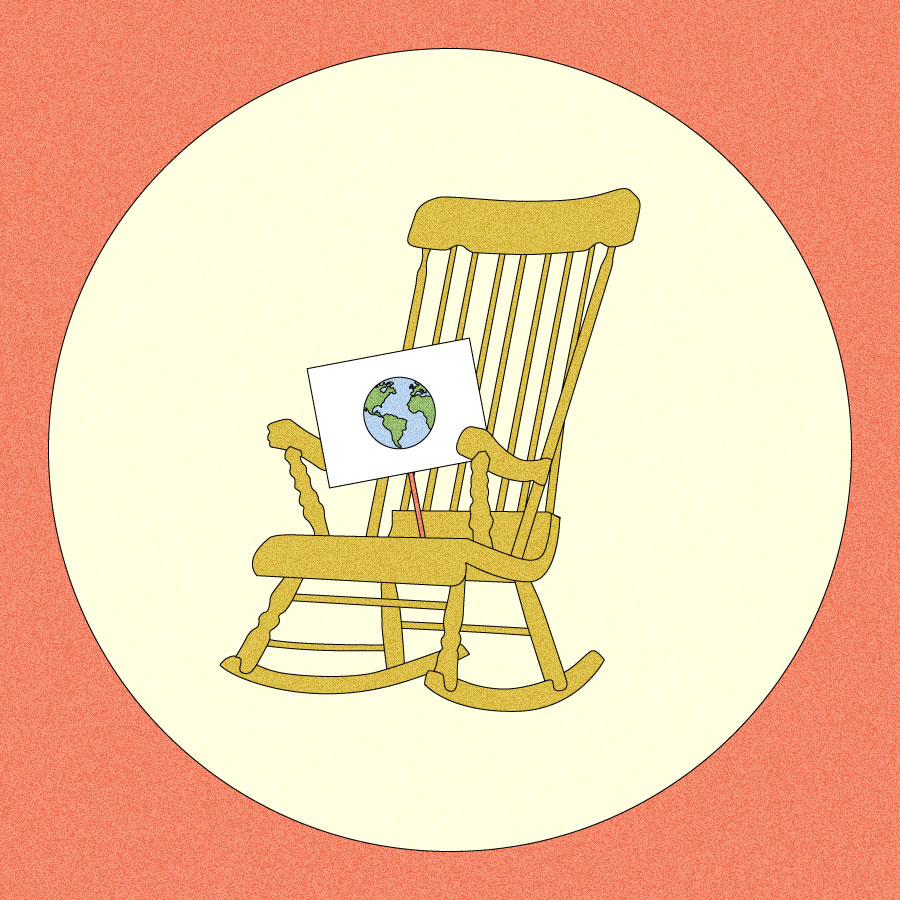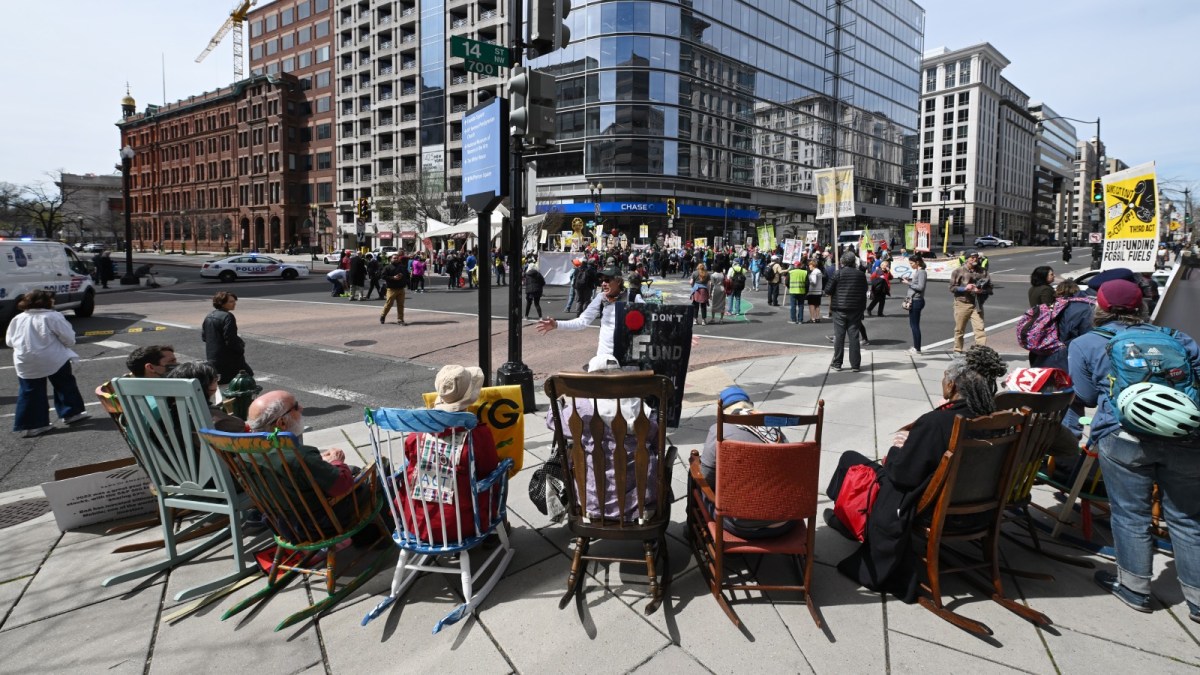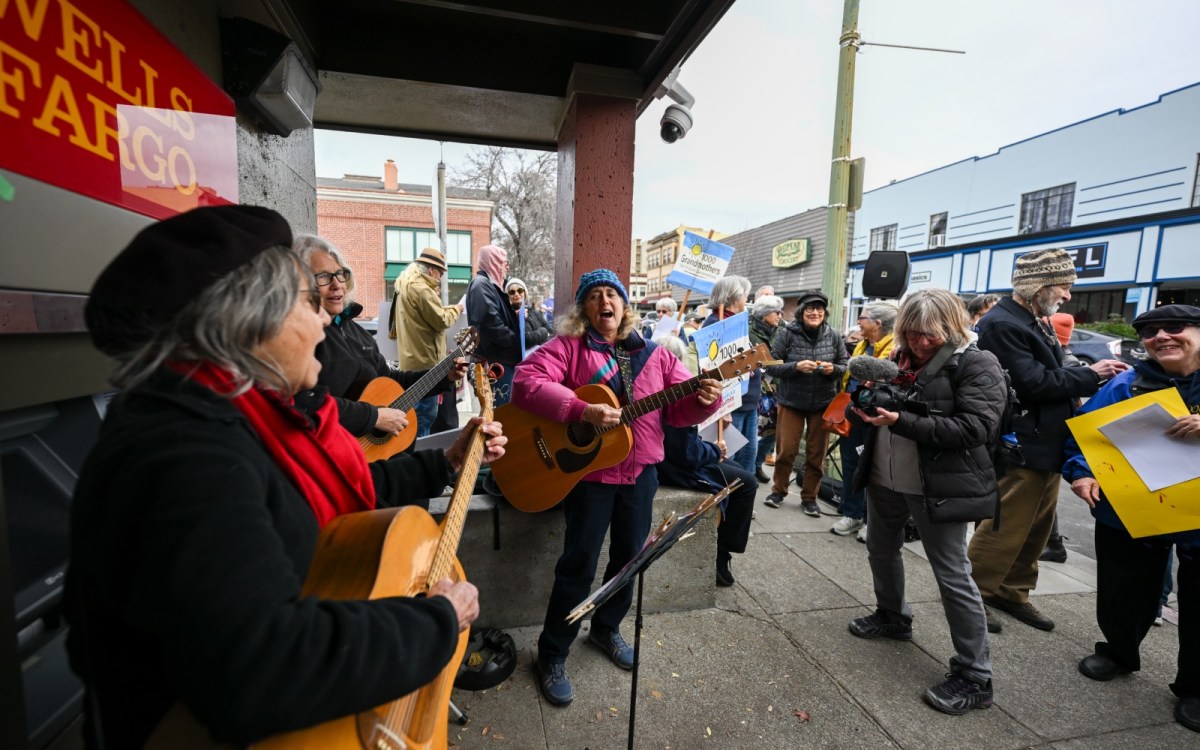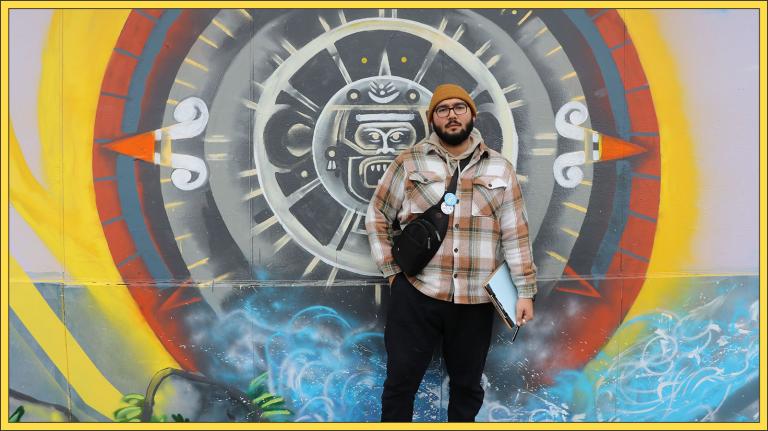
The vision
“We’re used to the idea that as you get older, you get feeble. That’s true — but there are real advantages to being closer to the exit than to the entrance. At a certain point, you really don’t give a damn. You might as well just say what’s on your mind, and act it out.”
Bill McKibben
The spotlight
A few weeks ago, on March 21, climate activists staged more than 100 protests across the country, calling on big banks to stop investing in fossil fuels. But unlike the massive youth protests and school strikes of 2019, these events were led by people older than 60.
The protests were the first major demonstration coordinated by Third Act, a climate and pro-democracy organization for “experienced Americans.”
“It did begin at some point to bother me, the number of times I heard people say, ‘Oh, it’s up to the next generation to solve this problem,’” says the famed author and environmentalist Bill McKibben. After spending much of his career working with young people on the campus divestment movement and through 350.org, the advocacy group he cofounded, McKibben, who is also an emeritus board member at Grist, wanted to rally people his age to fight for their climate legacy.
“It really began to occur to me that a group that had a lot of structural power was older people like me,” he says. Not only do they often hold positions of authority, but baby boomers and the Silent Generation together control about 70 percent of the nation’s wealth, compared to less than 5 percent for millennials (woe is us). McKibben also had reason to doubt the commonly held notion that people grow more conservative as they age. “If you’re in your 60s or 70s or 80s now, you were around for this remarkable social and cultural and political transformation — the apex of the Civil Rights Movement, the first Earth Day in 1970,” he says.
He founded Third Act in 2021, and the group began organizing workshops and voter registration campaigns, and encouraging members to switch banks or put pressure on their banks to divest from fossil fuels. The mailing list has grown to 50,000, McKibben says. “And as we demonstrated [on March 21], it’s not just a mailing list. We really helped lead the climate movement back into the streets.”
The March 21 day of action included marches, rallies, and protesters sitting in shifts to blockade local branches of the “big four” fossil fuel-funding banks: Wells Fargo, Chase, Citibank, and Bank of America. In Washington, D.C., many of the demonstrators did so in painted rocking chairs — which, in addition to adding comfort, “turned out to be a highly effective way to block the entrances to banks,” McKibben noted.
There were some veteran activists at the protests, like McKibben himself — but also plenty of newcomers, he says. “Most of the people are people who spent their lives, you know, selling insurance or teaching school or being nurses. And now they have some time, which they didn’t have before, and they’re using it to try and make sure their legacy is different from what it’s going to be if we don’t stand up.”
We spoke with one of those newfound activists, Lani Ritter Hall, about her experience joining the climate fight, and the power she sees in older people getting involved now. Her responses have been edited for length and clarity.
![]()

Third Act protesters sit in rocking chairs outside a Well Fargo bank in Washington, D.C. The Washington Post / Getty Images
Q. Tell me about yourself! How did you find your way to Third Act and climate protest?
A. I’m a retired K-12 educator. I spent more than 35 years in the classroom in both independent and public schools — I cherished my 22 years in Cleveland Public Schools. After I left the classroom, I spent a number of years leading online communities of practice for educators about how to infuse technology into learning.
I became more and more discouraged and dismayed at the state of our democracy. My initial entry into Third Act was more because of the democracy piece. Bill McKibben in February of last year wrote an editorial in the New York Times, and I thought, “I want to check this out.” I went to the [Third Act] website. And I have never ever been an activist.
One of the first things I saw were the working principles, which include being kind, being humble, being inclusive, boosting others, backing up youth, being accountable. I hadn’t seen myself as somebody who would be out in the streets, but I knew that if I could find a place here, and if they could welcome somebody who’d never done any kind of activist work before, this was a place I thought I could contribute. And I was welcomed. And it’s been a learning journey ever since, and it’s been absolutely incredible.
Q. How has your engagement on climate issues evolved since joining Third Act?
A. In terms of my climate journey, I am more committed than ever.
I spent hours on my computer reading and learning more and more, and becoming more convinced that the stance that Third Act takes on the importance of money — and what we as elders have to share in terms of wisdom, time, and because 70 percent of all the wealth in the nation is in elders’ pockets — that this is an avenue that can make a difference. Through the Civil Rights Movement and so many other movements, it was always the money that changed the laws. It didn’t change people’s hearts, but it changed the laws.
Q. Were you involved in the recent day of action that targeted banks?
A. Yes, I was. For the first time in 76 years, I was out on the street with a sign in front of a bank in Cleveland, Ohio.
Q. Wow! What was that experience like for you?
A. It was like, oh, my gosh, am I really doing this? Yes, you are!
And on top of that … I had been helping Third Act Ohio with their Twitter account. And the night before the event, the co-facilitator emailed me and she said, “Lani, do you think that you can live tweet from the event?” And, as much as I can do on a computer, I’m really phone challenged. I said, “Oh, my goodness, I don’t know, let me see if I can figure this out.” So I figured it out the night before.
We were out in front of the bank for over an hour. Everybody had a sign. There was a huge banner, we had stuff to pass out.
I had a family Zoom call, I think it was the Friday after our event. And I’m sharing with my 97-year-old mother-in-law, who’s in an assisted living facility, [a picture of] me downtown with a sign, with a bunch of other people — “Is that really you?” Yes! “Did you really?” Yes! “I’ve seen stuff like this on TV!” Yes! It was amazing.
Q. It sounds like it. Why do you think it’s important for older adults to be getting involved in this movement now, and showing up through protest?
A. Part of it is because we have the time. And many people in Third Act, this is not new for them. I think I’m probably in a minority in terms of somebody who hasn’t been, at some point in their life, involved in activism.
And I think it’s because we’re near the end of our life’s journey — and all of a sudden there’s so much more urgency about trying to really make a difference so that the world will be better for future generations. I have the beautiful opportunity to do “welcome to Third Act” calls now. And when we welcome people, we say this is an opportunity to change how our country sees us as elders. There’s lots that we can share. And we don’t have to be in front leading — we need to be beside young people, standing with them, and beside people in frontline communities, standing with them and supporting them.
Q. These protests also leaned heavily into the elder identity. What do you see as the power in that?
A. You heard about the Rocking Chair Rebellion in Washington, right?
Q. Yes!
A. I mean, what a beautiful way to emphasize that, right? That we’re going to be in rocking chairs, ’cause we’re old and we can’t stand up for a whole long time, some of us. But yes, age doesn’t mean that we don’t have persistence and we don’t have a fierce determination to change the sense of what’s possible.
The whole focus on eldering I think is one of the great strengths of Third Act. And that’s something else we talk about in welcome calls, too. I ask folks, “Have you ever considered yourself an elder? And what does that mean? And how do you think you would contribute differently now than when you were in your first or second act?” And, you know, for people that are new, you can see them pause for a minute. That’s not something they considered. And we always ask them to share their age, if they’d like — because we’re proud to be elders. Akaya [Windwood, Third Act’s lead advisor] has done beautiful conversations about intergenerational work and elders relinquishing power and being more generous.
And I have said this often — meeting people and welcoming them gives me great hope. Because beneath all the noise and the hate and the vitriol and the ugliness, there are an amazing bunch of kind people who really care about what’s going on and want to do something about it.
— Claire Elise Thompson
More exposure
- Read: more about the “Rocking Chair Rebellion” (NYT)
- Read: a recap of a local protest in Bedford, Massachusetts (The Bedford Citizen)
- Watch: a short video feature of Bill and the idea behind Third Act (PBS NewsHour)
- Read: a case for mobilizing older people in the climate fight (The Conversation)
- Explore: our issue on the importance of mentorship in movements for change (Grist)
See for yourself
Have you ever participated in a climate protest? A school strike, a march, a rocking-chair bank blockade? Direct action might not be everybody’s cup of tea — but as Lani shows us, it’s never too late to get involved in a cause. Reply to this email to tell us about your relationship with protest, whatever your age.
A parting shot
Another group rallying older people for the climate crisis, 1000 Grandmothers, staged a protest outside of a Wells Fargo in Oakland, California, on February 14 of this year. Per the event description, the grandmas and allies turned out on Valentine’s Day to “show love for future generations and the planet.”




